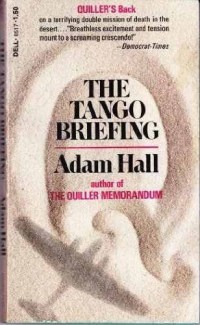The Shanghai Factor by Charles McCarry
 Monday, May 20, 2013 at 10:52PM
Monday, May 20, 2013 at 10:52PM 
Published by Mysterious Press on May 21, 2013
The Shanghai Factor is not Charles McCarry's best effort, but even a lesser McCarry novel is entertaining. This one is as much a mystery novel as a spy story, but it never quite develops the suspense and intrigue that fans of those genres crave.
A new agent, assigned as a sleeper in Shanghai, immediately breaks the rules by taking on a girlfriend he knows only as Mei. The unnamed agent assumes Mei is a spy but he likes the sex so he doesn't much care. Circumstances force the agent to leave China, but he soon returns with a new assignment: to set up Guoanbu operatives so they will be denounced as American spies. The operation appears to fizzle out, as does (to his great disappointment) his relationship with Mei. Back in New York, the encounters a Chinese operative who attempts to recruit him. Eventually it becomes difficult to know whether he can trust anyone, as each person who plays a significant role in his life might be a potential enemy, including the various women he beds at home and abroad. He becomes a pawn in a game played by two men "of mystery and power," one in Washington and one in China, all the while kept in the dark about the true nature of the game.
This is familiar ground for a spy novel, but the story is well told, often moving in unexpected directions. Most of it is credible, although some events near the novel's end seem both forced and implausible. McCarry maintains the novel's pace and the story is never dull. McCarry's observational talent is on full display, whether he's describing filth floating on the Yangtze or the curves of lover's body. His thoughts about the selective and uncertain nature of trust are not new to the genre, but they're well phrased. The same can be said of his observations about the power of coincidence and its relationship to fate.
For all its interest, however, the story is surprisingly light on suspense. The mystery's resolution is reasonably satisfying but not particularly surprising. The Shanghai Factor is the work of a supremely capable technician, but it lacks the "wow" factor that the best spy novels (and mysteries) produce. The agent is a well-defined character but not one I found myself caring much about. None of those complaints prevented me from enjoying the novel, but they prevent me from shelving it in the first tier of spy fiction.
RECOMMENDED
 TChris |
TChris |  Post a Comment |
Post a Comment |  Charles McCarry,
Charles McCarry,  Recent Release,
Recent Release,  spy in
spy in  Thriller
Thriller 


